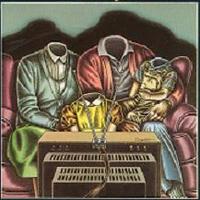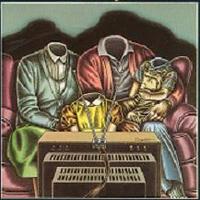
To what do we owe the persistence of religion in human affairs? Some people have called it wholly irrational and have said that the sooner the species evolves into rationality, the better. They attribute the troubles of humankind to religious fanatics and enthusiasts. During the Crusades of the Middle Ages, Arabs fought in the name of Allah to rid the world of the Infidel Christians. Europeans fought in the name of Christ to rid the world of the Infidel Muslims. (Also see Gott Mit Uns: Zen at War, 5 February.)
Is religion a meme whose time has come and gone? Or whose time should never have come at all? First, though, what is a meme?
Originally proposed in biologist Richard Dawkins' book, The Selfish Gene, 1976, memes can be defined as any self-referential belief system with inherent instructions for its own propagation. As Dawkins explained, they can be "tunes, ideas, catch-phrases, clothes fashions, ways of making pots or of building arches. Just as genes propagate themselves in the gene pool by leaping from body to body via sperms or eggs, so memes propagate themselves in the meme pool by leaping from brain to brain via a process which, in the broad sense, can be called imitation. . . . . "
Memes are analogues for genes, which is to say they are analogues for natural selection, the two reinforcing one another or coming into competition. Celibacy is a meme but as a gene has no biological survival value, although culturally it may have such value. Priests or nuns transmit the meme to young boys or girls who are trying to make a life choice. Suppose the celibacy meme made better priests and nuns because they are not distracted by family duties. If this supposition is true, then celibacy does have better cultural survival value. On the other hand, a gene for celibacy almost by definition would not produce celibate offspring. Rather, no offspring would ensue from it.
Okay, now to the questions, (1) To what do we owe the persistence of religion in human affairs? and (2) Has its time come and gone?
In my 31 December article, Memes, Genes, and God, I have this to say: "Dawkins and other meme theorists regard religious memes as dangerous to human futurity. The idea of God is a particularly strong meme, and has persisted from before recorded history until the present day. It has extremely high survival value. According to Dawkins, its survival results from its psychological appeal. He says that it 'provides a superficially plausible answer to deep and troubling questions about existence. It suggests that injustices in this world may be rectified in the next. . . . God exists, if only in the form of a meme with high survival value, or ineffective power, in the environment provided by human culture.' " (See A Footnote below.) *
Geneticist Mark Ridley places religious memes in a differerent perspective. To do so, he asks, Why aren't we more rational? He proposes a thought experiment involving evolution. Suppose that in the course of evolution the population consisted of two brain variations: Rationalists, and Irrationalists. Rationalists did everything according to reason; Irrationalists often followed impulse and emotion. Rationalists weren't superstitious; the Irrationalists were.
Since reason is more efficient than irrationality, natural selection should favor the rationalist brain variation. The Irrationalists can dream of people flying through air. They can believe that they see one another across great distances, They can be astounded by seemingly miraculous cures to diseases. The rationalist types can eventually devise means for airborne transportation, distance-looking, and disease cures.
If that is the case, how come the mass of humanity is descended from the Irrationalists?
Take another look at the Infidel Arabs and the Infidel Christians. They went sword to sword for a piece of real estate, say, Jerusalem, because it had meaning for them. On the other hand, Rationalists would have regarded it only for the resources it offered, and thereby avoided conflict over such an arid piece of dirt. They would not take irrational risks while their counterparts would.
Humans need to filter life into meaning. As William James observed long ago in The Will To Believe, nobody can take a neutral position on anything. Even neutrality implies a belief.
We will not be stirred into grand action without a belief in meaning. It is this trait that had survival value for the human species. Dawkins applauds science as a valuable meme, while regarding religion as a dangerous one. Science, though, belongs to rationalism, and consider how the brain type would have fared in evolution against the Irrationalists.
( Elsewhere in this blog, I have discussed spirituality without religion as a means to rid the world of dangerous, foolish, dogma and doctrine, but if given a choice I would rather see a world with religion than one wholly devoid of spirituality.)
* A Footnote:
From memes to genes. Dawkins would have no problem if I said that individual organisms, "selfish" or not, reveal a compulsion to perpetuate their genes and that this compulsion is a dynamic of biological regularities not apparent in an isolated system. The dynamic cannot be described in terms of DNA biochemistry. In fact, no definitive explanation can be found in any isolated system. Yet we observe among organisms the selfish gene, as Dawkins calls it.
Would he have a problem if I replace "a compulsion to perpetuate their genes" with a phrase about a compulsion to seek God? The only difference between accepting one statement and rejecting the other is not logic but mind set.
This implies that the "God meme" has a basis not in superstition, but in an intuitive, innate human recognition, a recognition that mimetics derive from the source of all memes. To determine that, of course, Dawkins and others must learn attitudes, mental skills and concentration currently unknown to them; they must stop theorizing and immerse themselves in an initially alien perspective in order to experience directly whether the "God meme" is superstition or not. (To understand this, see my comments on experiential expertise in Francisco Varela and the Emergent Self, 6 January. The paragraph begins with this sentence: "Western cognition science, according to Varela, doesn't know enough about experience.")
Finally, this: ". . . I have never found it possible to dismiss the content of religious thinking simply as simply part of an outmoded phase in the consciousness of mankind. . ." Werner Heisenberg, Physics and Beyond










